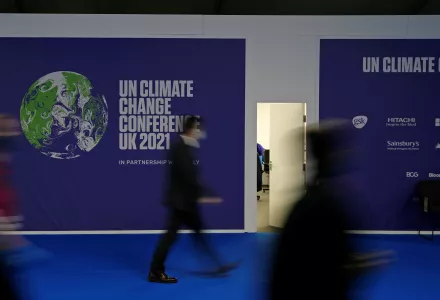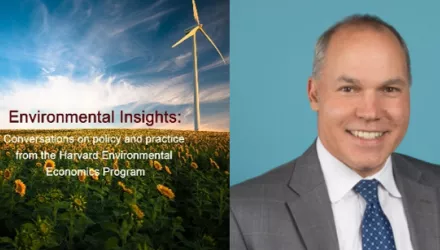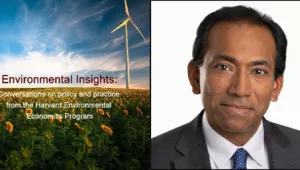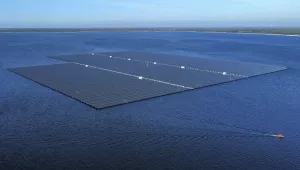
Pledges and coalitions, mitigation and adaptation, taking to the streets and fringe music fests as conference winds down
Note
Harvard Correspondent Emilly Fan would like to express her sincere gratitude to the Harvard Project on Climate Agreements and Foundation Environment ‒ Law Society for making this unforgettable trip possible.
COP26 showed me the beauty of seeing a whole city come together in a shared mission of achieving a sustainable future. Due to the extreme shortage of accommodations in Glasgow, local Scots opened up their homes to host delegates from around the world. My hosts showed me true Scottish warmth and hospitality, with evening games of Rummikub over homemade blueberry sorbet, samplings of classic Scotch whiskey, and playtime with their 18-month-old.
In the conference halls, fanfare had shifted to frustration as world leaders departed the city after the third day of COP26, leaving their negotiators to navigate the difficult back-and-forths over how exactly the world would “keep 1.5C alive,” the global warming goal set by the Paris agreement.
While there were many promising pledges and coalitions formed around ending deforestation, reducing methane emissions, and ending public financing of overseas fossil-fuel projects, the questions of accountability and transparency were continuously emphasized both inside and outside of the conference.
At the Presidency’s dialogue with the Local Communities and Indigenous People Platform, Indigenous leaders from across the globe highlighted the reality that even though Indigenous Peoples and Local Communities conserve and steward almost half of the world’s land mass and 80 percent of its biodiversity, they received less than 1 percent of the foreign assistance funds spent for climate mitigation and adaptation over the last 10 years. Yet drawing upon the wealth of Indigenous knowledge to build resilience would be essential to creating long-term climate solutions....
Fan, Emilly.“After World Leaders Depart, Hard Talks Begin at COP26.” Harvard Gazette, November 10, 2021.
The full text of this publication is available via Harvard Gazette.



